|
Advertisement
|
Dirty Little Secrets
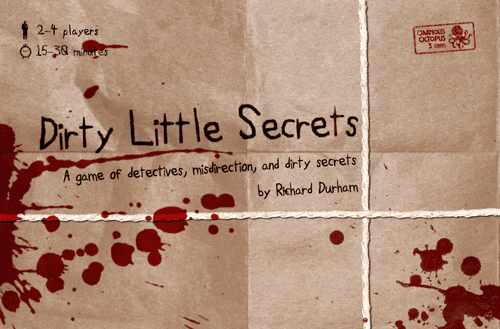
DescriptionIn Dirty Little Secrets players are detectives with a slightly loose code of ethics. You’ve used some tactics you’re not proud of, but it’s always gotten the job done. Now some of the other detectives are on a case that might reveal your dirty little secret. Can’t let that happen, so better you expose their secret first. At least your partner has your back; seems it’s hard to find someone you can rely on in this department. Players will work with their partner to use deduction and rough tactics to uncover your opponents’ cards, while using misdirection to cover your own tracks. Players must gather evidence, information about opponents’ cards, and choose the right times to make accusations. Be careful about it, though, as every action you take has a trade-off, and often this gives your opponents knowledge to use against you. Aim of the GameYou (and your partner) are trying to have the most Points at the end of the game. Points are gained by keeping your most valuable card secret until the end of the game, and using collected evidence to remove your opponents’ cards. During the game you’ll use your chosen Action cards to gain information about opponents’ cards, and tactically position your cards to confound your opponents and open up new Actions for you to use. The game ends immediately after all the Evidence is collected.
Gameplay OverviewEach player has the same 8 Action cards. They are each numbered with the Time – 1 a.m. up to 8 a.m. This Time doubles as the card’s value in points if it scores at the end of the game. Players will choose 5 cards to play with each game, keeping their choices secret. In turn, players take up to 2 unique actions:
Early in the game, players will primarily collect Evidence and use their Front Line cards to gain information. Later, they’ll manipulate setups and try to use Evidence to eliminate cards from play. Evidence Collecting Evidence is crucial to victory, because you need it to make accusations. By itself, Evidence is worth 1 point for every 2 you have. But if you successfully use one to accuse an opponent, it goes into your Evidence Locker and is worth a full point. If you accuse incorrectly, however, the Evidence goes to your opponent. Accusations Using a card You can use any card that’s still hidden in your Front line – but be careful! Don’t point at it, flip it, or do anything that might indicate WHICH card you’re using. Unless, that is, you’re trying to mislead your opponent. The low value/Time cards are powerful actions, as they will get you solid information like the Time difference between 2 cards of an opponent, or which cards in their Front line have “finger-prints” on them. This will help you deduce their cards, while other actions like the Frame-up, provide you with tactical moves to reposition some of your – or an opponent’s – cards. Bluffing? In the basic game you are only able to take the actions of cards you legitimately have in your Front Line. This provides a more deduction and tactical game. However, optional bluffing rules allow players to take any action they wish – legal or not. But be careful that your opponent doesn’t call you out that you’re lying, or you’ll start losing cards! Covering your tracks As your valuable cards and actions are revealed by opponents, or as they gain more information, you’ll want to get a little breathing room. Covering your tracks may take your whole turn but it lets you choose 3 of your cards (Front line or in your reserved Back Office) to hide again and place wherever you like. It’s a great way to get back in the game, or foil an opponent before they have the chance to accuse you. The Chief’s badge
End of the GameOnce the last Evidence token is claimed, the game ends. It’s a timer, as once collected, Evidence never re-enters the central pool. Each Players also score points for their collected Evidence
Summary Dirty Little Secrets is a game of ‘playing the player’ as much as it is a game about your card-play. Good players are highly responsive to their opponents, and learn to push and prod player behaviours to their favour. With only 8 cards, it’s not about having the right card – it’s about knowing when and how to use it. For rookies, there is a suggested set of cards to use that have more straight-forward actions that let these players be effective until they learn some of their own tricks and strategies. Game DiscussionsAdd CommentYou need to be logged in to comment. Insert Bullet List Please enter at least one item. Item: Item: Item: Item: Item: Insert Numeric List Please enter at least one item. Item: Item: Item: Item: Item: Insert Link Please enter the link of the website Optionally you can add display text Insert Email Please enter the email address Optionally add any display text Insert Image Please enter the link of the image Insert YouTube Video Please enter the link of the video MarketplaceNo listings at the moment. Do you own this game? Click here to list it for sale.
|
Best Sellers
Board Games
|
||||
Latest Searches: pride | Eunice la monopoly | outsmart+game | nashville+board+game | London | die+siedler | jack ass | rook on rook off | Deadliest Catch Board Game | thunder | alien+escape | Nerf+rival+nemesis | Carson city poly | Cornicole | Monopoly Sicily | Jack | Panzer | nfl monopoly | warewolf | Monopoly+harry+pottet | Star reporter board game | Sherlock+homes+monopoly | global cooling | New Haven opoly | pie in face slap | monopoly avengees | Transformers: The Last Knight 1-Step Turbo Changer Autobot Hound | classic+warlord | Silly+sandwiches | risk walking dead
All Rights Reserved

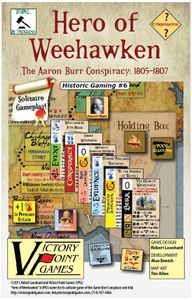
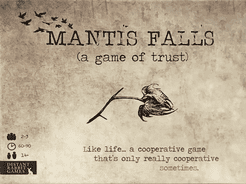

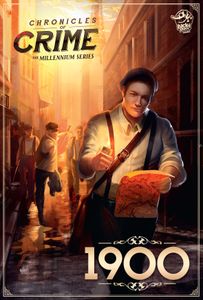

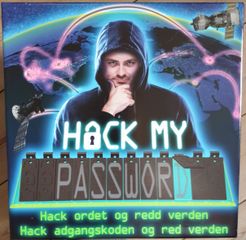

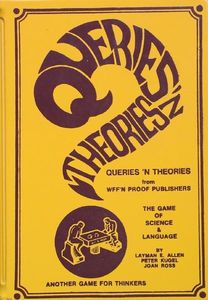
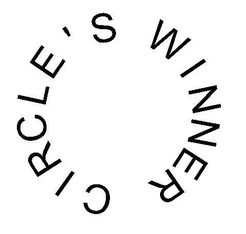

Comments (0)